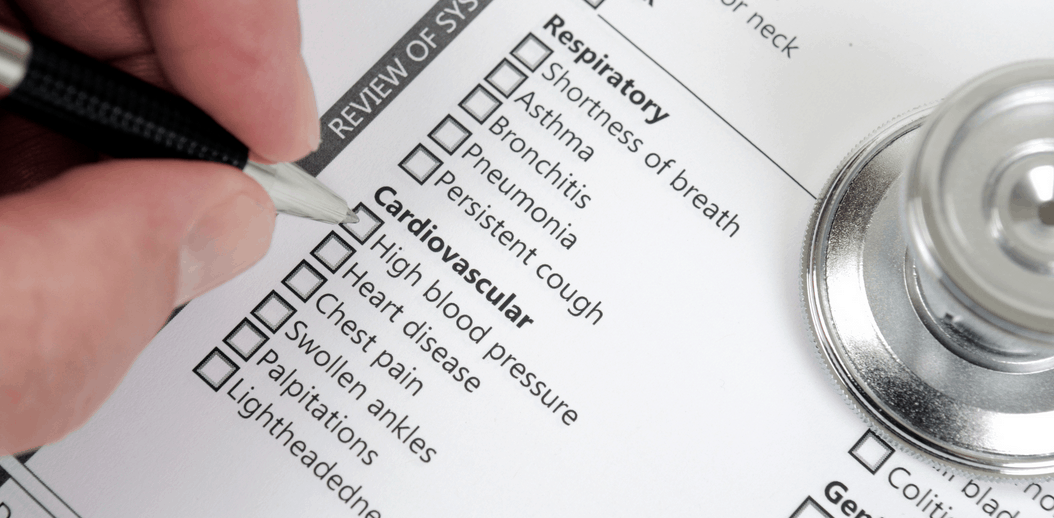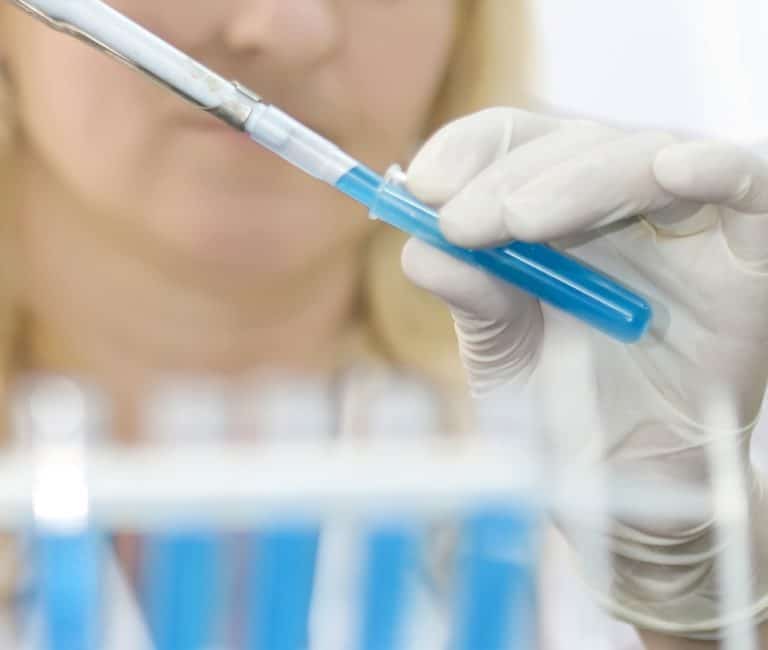You’ve probably heard jokes or perhaps even told a few about getting a prostate test or getting screened forprostate cancer. But considering that one in six men in the United States will be diagnosed with prostate cancer, getting a prostate test is no laughing matter.
Let’s face it: people poke fun at the prostate (pun intended). And while it’s okay to make a few jokes, prostate cancer, like a prostate cancer screening, is no laughing matter. One reason people make jokes about the prostate test is that one part of the process involves a less than dignified but very brief examination called a digital rectal examination (DRE). If you’re a guy who has not yet had a DRE, I explain it below.
For now, just let me say that if getting a DRE is your reason for not getting your prostate checked, then it’s time you took a deep breath and just did it. Hey, every guy who goes into the military has had to cough or strain while a doctor felt his groin, so if they can do that, you can get a DRE is all I’m saying. Forget the jokes, learn all you can about prostate tests and prostate cancer, and then make an informed decision about getting screened.
Prostate and prostate cancer
Despite the fact that prostate cancer is the second most common type of cancer among men in the United States prostate cancer statistics are estimated by the National Cancer Institute to kill more than 32,000 US men in 2010, prostate cancer screenings do not get the amount of press or respect–that breast cancer screenings do. Don’t get me wrong: screening for breast cancer is extremely important and every woman should discuss screening with their physician and heed his or her recommendations.
But prostate screening is critically important too. True, the prostate gland is not as glamorous or sexually appealing as breasts nor is it visible to remind us that it’s there, but it performs various important functions, including making some of the fluid for semen, keeping urine out of the semen, and enhancing pleasurable sensations of arousal and orgasm. You also want to keep the prostate healthy because if it become infected or enlarged, it can seriously impact urinary and sexual functioning. Therefore maintaining prostate health is of utmost importance, and undergoing prostate tests is one way to do it.
Do I need a prostate test?
Doctors and other experts do not all offer the same recommendations for prostate cancer screening, although the Food and Drug Administration (FDA) has approved the use of the PSA test along with the DRE to help detect prostate cancer in men 50 years and older. Some say men older than 50 should be screened every year, while others recommend men who are at high risk for prostate cancer to begin screening at age 40 or 45. (Risk factors include age, a family history of prostate cancer – especially a brother or father, being African American, a high-fat diet, obesity, lifestyle and other factors such as exposure to chemicals and toxins.) Other experts say routine prostate tests are not necessary.
The point is, every man needs to have a prostate test at some point, and that point differs for each man. Therefore you should work with your physician and consider your unique state of health, along with the risk factors already mentioned, and the fact that age is the most common risk factor, with nearly 63 percent of cases occurring in men age 65 and older.
Prostate tests
Prostate cancer screening typically involves two procedures. One is the digital rectal exam (DRE), during which a doctor inserts a gloved, lubricated finger into the rectum. It takes about a minute or so for the doctor to feel the prostate through the wall of the rectum and to check for any suspicious lumps, as well as for any abnormalities in the glands shape or size. While it is not the most comfortable procedure you will ever experience, it usually is not painful and is over rather quickly. (By the way, women also have DREs to check for abnormalities in their reproductive organs. DREs are also used to check for colon polyps.)
The prostate-specific antigen (PSA) test involves taking a small blood sample and having it tested for the level of the antigen. PSA is a substance produced mostly by the prostate that may be present in elevated amounts in men who have prostate cancer. However, high PSA levels can also be an indication of noncancerous conditions, such as an enlarged prostate (benign prostatic hyperplasia, or BPH) or prostatitis.
Prostate tests are not foolproof, however, so you should have a discussion with a trusted, knowledgeable healthcare provider to determine the best time for you to be screened. During that discussion your healthcare provider should inform you about the risks of prostate screening.
Risks associated with prostate tests
As with most tests, prostate tests run the risk of providing false-negative or false-positive results. If you receive a false-negative test results (one that shows you do not have cancer when you really do), then you may delay seeking treatment even if you have symptoms. A false-positive result means your test appears to be abnormal even though you don’t have cancer. Such results could send you on an unnecessary route of more tests, including a prostate biopsy, and the risk of complications, which include fever, pain, blood in the semen or urine, erectile dysfunction and urinary tract infections.
A common risk associated with prostate tests is if your PSA test shows an elevated level, your doctor may recommend you have a biopsy of the prostate to help determine whether you have cancer. He or she may recommend a biopsy because a man’s PSA level alone does not provide enough information to distinguish between a noncancerous prostate condition and prostate cancer. A biopsy, however, is associated with complications, as I have already noted.
If the biopsy indicates that you do not have cancer, then that’s great news, and you can explore other reasons why you have high PSA levels, such as an infection, BPH, or prostatitis. But having had the biopsy, you still run the risk of experiencing the complications. If the biopsy indicates that you do have prostate cancer, then you and your healthcare provider will need to discuss whether you should undergo treatment. According to prostate cancer researcher Arul Chinnaiyan, MD, PhD, the SP Hicks Collegiate Professor of Pathology at the University of Michigan Medical School, the PSA test is responsible for hundreds if not thousands of unwarranted biopsies a year, and ultimately overtreatment of incidental [cancers]. (WebMD) This is all food for thought and discussion with your physician.
Another risk factor associated with prostate tests is that thus far, there is no scientific proof that undergoing these tests improves your health or will help you live longer if you do have cancer. In fact, a multicenter study that included more than 71,000 men found no evidence that screening with PSA and DRE is effective in reducing the risk of death from prostate cancer. (Concato et al)
If the tests indicate you do have prostate cancer, then the good news is that you have identified it and you can now take steps to deal with it. Some prostate cancers do not cause symptoms or become life-threatening, and so doing nothing”except monitoring the situation regularly with repeat PSA tests, a process known as watchful waiting”may be all that is necessary. Prostate cancer tends to be a slowly progressive disease, and very slow-growing tumors are unlikely to threaten a man’s life. Therefore treating these men with surgery, radiation, or hormone therapy, all of which may cause serious side effects, would unnecessarily disrupt their quality of life.
What you can do now?
If you’re a guy, or if you’re a woman who has a man in her life who has not taken any steps toward having his prostate tested, then it’s time to consider a few factors:
– One in six men develop prostate cancer is that one you? Talk to your healthcare provider about when you should have your prostate tests. Now may not be the time to have your PSA and DRE, but it is time to plan ahead.
– If you get prostate cancer, your life will never be the same, no matter what you read or people tell you. Research suggests that a healthful diet that is rich in antioxidants such as lycopene, quercetin, catechins (green tea), and procyanidins, may help protect against prostate cancer. (Konijeti; Jung; Reagan-Shaw) This is a step men can start at any age! You are never too young to reduce your risk of cancer through positive modifications to lifestyle, diet, exercise, stress-management, weight loss and nutrition as well as hormone and inflammation management, consuming limited dairy products and avoiding foods, additives and supplements that may contribute to prostate cancer. And while there is nothing that can “prevent” prostate cancer, this does not mean you shouldn’t do all you can to reduce your risk, no matter what age you are.
– Even if you think you’re too young to be tested, think again: prostate cancer can affect men in their thirties. Prostate cancer statistics from 1998 to 2002 found that the median age at diagnosis was 68 years, yet 0.5 percent of men between 35 and 44 were diagnosed with the disease, and 8.3 percent were between 45 and 54 at the time of diagnosis. (emedtv) And more and more evidence is showing that the positive effects of antioxidants is only being seen when commenced in your 20′s and early 30′s so it’s important to start eating healthy and taking positive lifestyle steps no matter what age you are.
– Think about adding to your diet and nutritional program with supplements like lycopene, quercetin, omega 3, mushroom extract, curcumin (turmeric), vitamin D, resveratrol, pectin, green tea, cayenne (capsaicin) that all have tier 1 and tier 2 clinical (human and animal) trials supporting their effectiveness in boosting immunity and causing apoptosis (self destruction) of cancer cells. And be cautious about supplements that may contribute to prostate cancer such as calcium and excessive folic acid/folate intake from supplements (as opposed to diet). Note also that daily multivitamin use has been linked to a higher risk of prostate cancer.
The bottom line
Talk to your doctor today and if it’s the right decision for you then “Man Up” and get tested. The earlier the detection, the better your treatment options and overall post-treatment quality of life.
Read more in our Prostate Cancer Health Center.
References
Concato J et al. The effectiveness of screening for prostate cancer: a nested case-control study. Arch Intern Med 2006 Jan 9; 166(1): 38-43
Emedtv. Prostate cancer statistics
Jung YH et al. Quercetin enhances TRAIL-induced apoptosis in prostate cancer cells via increased protein stability of death receptor 5. Life Sci 2010 Feb 27; 86(9-10): 351-57
Konijeti R et al. Chemoprevention of prostate cancer with lycopene in the TRAMP model. Prostate 2010 Oct 1; 70(14): 1547-54
National Cancer Institute. Prostate cancer overview: types
Reagan-Shaw S et al. Antiproliferative effects of apple peel extract against cancer cells. Nutr Cancer 2010 May; 62(4): 517-24







